- Register
- Log in to Tune-In
- Wishlist (0)
-
Shopping cart
(0)
You have no items in your shopping cart.
Beatles News

Nearly three months after David Bowie died from cancer on January 10, an impressive roster of musicians put on two tribute concerts at New York’s Carneige Hall Thursday and Friday nights. Although the first show had been planned since October, interest spiked after Bowie’s unexpected passing and a second date was added. As Time reported, many of the performers took time to share their reflections on Bowie as a musical influence and personal friend.
Among those was Sean Lennon, whose father John Lennon was an idol of Bowie’s. The men were friends and had a working relationship in the 1970s. As Sean recalled, Bowie was an early personal and musical influence. The multi-faceted performer took time to give him reading material when he was a youngster.
“[T]he real relationship I had with him was personal, because he was my parents’ friend. When I moved to Switzerland for boarding school, he would pick me up from school and take me to museums and tell me about Kokoschka and painters and books. He gave me the ‘Foundation’ trilogy by Isaac Asimov when I was a kid.”
“I’m really sad about him passing, as one would be about an uncle or something, but then details
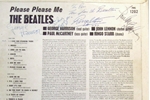
A rare signed Beatles' first pressing of their Please Please Me album given to a Grantham area woman 53 years ago could land her a £25,000 windfall when it goes under the hammer this week. The mystery woman vendor - who insists on staying anonymous - was a teenage fan of the fab four when the album was released in March 1963. And she actually got hold of it because a friend's father was the manager of the London hotel where the world's biggest pop band were staying at the time. Now Lincolnshire auctioneers Golding, Young and Mawer are preparing for internet bids between £18,000 and £25,000 for the record and its signed sleeve.
They have had "significant interest" already for the album and a card also signed by the group - a separate lot expected to go far between £600 and £800 - at their Grantham Auction Rooms.
The sale is taking place this Wednesday, April 6 from 10am at the Old Wharf Road action venue in the town. Please Please Me was the first album produced by The Beatles and was released on March 22, 1963. Four different pressings were produced with label variations. "Lot 16 is an album from the first pressing and label variation.It is of critical importance to any details

"Just about everyone is tired of the Beatles."
So read the first line of a story on page 1 of the Billboard magazine dated April 4, 1964. That was the week that the Beatles made history as the only act ever to simultaneously occupy the Billboard Hot 100 chart's entire top five positions.
So … why was Billboard printing such seeming blasphemy?
"Disk jockeys are tired of playing the hit group," the story continued. (Cleverly headlined "Chart Crawls With Beatles," the item was written by Jack Maher and Tom Noonan, the latter of whom launched the Hot 100 in 1958.) "The writers of trade and consumer publication articles are tired of writing about them and the manufacturers of product other than the Beatles are tired of hearing about them."
Billboard, of course, noted one key exception. "Everyone's tired of the Beatles – except the listening and buying public."
With a 27-1 second-week blast to the top for "Can't Buy Me Love," the Fab Four locked up the Hot 100's entire top five:
No. 1, "Can't Buy Me Love" No. 2, "Twist and Shout" No. 3, "She Loves You" No. 4, "I Want to Hold Your Hand" No. 5, "Please Please Me"
By: Gary Trust
Source: Billboard
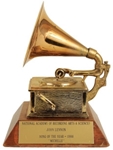
When an artist wins a Grammy Award, the Recording Academy insists that a form be signed with the artist agreeing that they will not sell the Grammy. Failure to live up to the agreement allows the Academy to, in effect, repossess the award.
That’s why they have taken action, suing Gotta Have It! Collectibles in New York, for putting John Lennon’s Grammy from 1966 for writing Michelle on the auction block. Gotta Have It! currently has a starting bid of $40,000 on the award but no bids have been placed.
The Academy is accusing Gotta Have It! and an unnamed owner of the award with “fraud, false advertising, unfair competition and tortious interference with contractual relations.”
Here’s the strange thing about the action. According to Gotta Have It!, this same award was sold twelve years ago by Christie’s Auction House for $35,850 yet the Recording Academy did not try and block that sale.
Source: Music News
details

Before they were anything else, The Beatles were over-the-top fans of great popular music. Having consumed and studied the hits so fervently, when it came time to write what they called their “fan songs,” John Lennon and Paul McCartney made a strategic decision about how to write ones that would matter to people: They’d use personal pronouns in the songs to help every listener feel like each song was their very own.
As teenagers, Lennon and McCartney had listened to everything they could get their hands on, from Tin Pan Alley and show tunes to the most obscure American R&B. The Beatles were still a smoking-hot cover band—playing others’ songs—when Beatlemania began. (It was a one-two punch really, since they were also known for their hilarious onstage behavior that included a hail of off-the-cuff jokes, skits, and mockery of each other.)
Once recording was starting to seem like a real possibility, Lennon and McCartney got serious about writing their own songs. In fact, it was through now-mostly-forgotten song plugger Kim Bennett’s interest in an early—and only ever released on Anthology 1 in 1995—McCartney song, “Like Dreamers Do,” that they g details
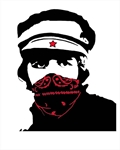
Charlotte Fine Art Gallery debuts the signed artwork of the Beatles and Bob Dylan Friday. The exhibit runs through Sunday and includes John Lennon’s “Bag One” collection, George Harrison’s collaborations with musician Keith West, Paul McCartney’s abstract expressionist paintings, Ringo Starr’s pop art and Dylan’s Impressionist-style paintings. Limited-edition signed lithographs will be available for purchase. Collection curator Neal Glaser, who is Ringo Starr’s art publisher and Paul McCartney’s art distributor, answered a few questions about the new show.
Q. Where did the idea to combine the Beatles’ and Dylan’s artwork come from?
A. There were no bigger cultural icons of the ’60s than Bob Dylan and the Beatles. Since all have worked in the visual arts, it seemed perfect to put on a show of their paintings all together in one place. Furthermore, the Beatles were such huge fans of Bob, and vice versa. It all fit together.
Q. Why Charlotte as opposed to a larger metropolitan area?
A. We love the Charlotte Fine Art Gallery, and the people the last time we were here (animator Ron Campbell’s September show) were just details
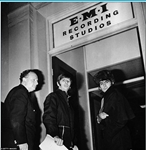
Abbey Road has long been a Mecca for music fans and the bane of London cabbies - constantly stopping for quartets of tourists posing mid stride on the zebra crossing outside. But music enthusiasts around the world can now feel what it's like to walk the hallowed halls of the studio from the comfort of their own homes. The London recording studio has teamed up with Google Play to create an interactive musical landmark tour, called Inside Abbey Road for Cardboard.
By using Google's Cardboard viewer and a downloadable app, fans can ascend the studio steps for a guided virtual tour, narrated by Giles Martin, the son of Beatles producer Sir George Martin. The studios have been instrumental to popular music and brought the public albums from some of the most iconic British artists in musical history.
Beyond the Beatles, the North West London studios have been home to a plethora of recording artists since opening its doors in 1931, with the first recording of Sir Edwin Elgar. Since then artists as diverse as Kanye West to Duran Duran, and Iron Maiden to Lady Gaga - spanning every type of music - have echoed around the studio walls.
Source: Daily Mail
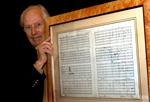
Jef Hanlon spent decades at the forefront of live music promotion, putting on acts such as B B King, Chuck Berry, Simon and Garfunkel and Stevie Wonder. But were it not for the Beatles, says Hanlon when I interview him:
I’d probably now be a retired civil engineer living in a nice part of Lancashire … because they opened the door for the northern accents, the northern guys to get down there and do things.
Hanlon came out of retirement to produce The Sessions Live, a “live restaging of the historic recording sessions of the Beatles”, which premieres at London’s Royal Albert Hall on April 1. The complexity of the show is testament to the changes wrought on the fabric of popular music by the quartet and their production team at Abbey Road.
Hanlon stresses that this isn’t a lookalike show with “guys with wigs on their heads and tie-dyed jackets and Cuban-heeled boots”. Instead, it is an attempt to capture the sound and the recording process. It features 45 performers, including seven singers (veterans of previous Beatles shows) to recreate double-tracked vocals, a six-piece band of leading session musicians and a 21-piece orchestra. It also features actors pla details
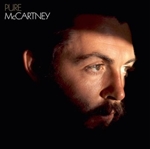
Paul McCartney has announced plans for a new solo compilation titled 'Pure McCartney'.
The release will be available in both 2CD and 4CD versions (alongside digital and vinyl releases), with the iconic songwriter overseeing the curation himself.
The tracklisting moves from those early solo endeavours through his globe-trotting Wings career, as well as lesser noted endeavours such as the electronic-inclined The Fireman project.
"Me and my team came up with the idea of putting together a collection of my recordings with nothing else in mind other than having something fun to listen to," Paul comments. "Maybe it's to be enjoyed on a long car journey or an evening at home or at a party with friends? So we got our heads together and came up with these diverse playlists from various periods of my long and winding career".
"The word 'career' is a bit misleading because to me it has been more like a musical adventure than a proper job," he continues. "It pleases me, and often amazes me, that I've been involved in the writing and recording of so many songs, each of them so different from the others".
'Pure McCartney' is due to be released on June 10th.
By: Robin Murray
Source: Clas details

Lifelong Fab Four obsessive Jackie Holmes, 48, bought Ringo’s boyhood terrace during an auction at Liverpool’s legendary Cavern Club. With a guide price of £55,000, Ms Holmes eventually saw the hammer go down with her final bid of £70,000 accepted on Thursday. Last night she revealed it will join her Beatles collection, having already bought George Harrison’s childhood home for £156,000 in 2014 and John Lennon’s mother’s house for £155,000 last year.
Her latest buy, the white and pink two-bed Victorian terrace house at 10 Admiral Grove, Toxteth, was Ringo’s home from age three to 23. It’s lovely to own another piece of Beatles history Jackie Holmes Ms Holmes said she was delighted to own another piece of Beatles’ history. She said: “I am absolutely made up. The Beatles and their music have been a huge part of my life. It’s lovely to own another piece of Beatles history. “Now I’m just hoping to find a Beatles fan to rent it to who will love and appreciate it.”
The house was known to be a regular haunt for the Beatles in their younger days and other well-known faces on the Merseybeat scene including the late Cilla details

A job where John Lennon feeds you grapes as Paul McCartney plays the piano sounds like a sensible career choice. In The Women Who Wrote Rock (Radio 4), Kate Mossman tells the stories of “young women who happened to be in the right place at the right time”. That time was the early 60s, when pop exploded and intrepid reporters were smuggled out of hotels in laundry baskets in the name of getting a good interview.
This is a gem of a popumentary, full of warmth, excitement and ego-free fandom. Trailblazing journalists, such as Maureen Cleave and Dawn James bagged their stories by observing what went on and asking the questions that satisfied screaming fans. Rock’n’roll cliches didn’t factor and, from these fond memories, it sounds like a joyous and surprisingly innocent time. Teen magazine Fabulous would interrogate Keith Richards about his favourite colour and what kind of girl he’d like to take on holiday. As the writers recall their experiences, it’s heartwarming to hear how little separation there was between them and their subjects. “They were just ordinary people making lovely music,” says James, who Ringo Starr cheekily described as “beauty and brains” details
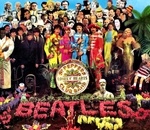
It was 49 years ago today (March 30th, 1967) that the Beatles posed for their famous Sgt. Pepper's Lonely Hearts Club Band album cover. The Beatles, who were sporting psychedelic marching band outfits, had designed the album cover concept with then husband and wife team Peter Blake and Jann Haworth, explaining that they wanted the crowd behind them to include "people they liked."
Blake created the scene of the group being flanked by their audience, using mainly cardboard cut-out photographs of famous people. The final shot, which was photographed by the late Michael Cooper, has gone on to be one of the most revered and imitated album covers in rock history. Among the famous figures that the group's record company EMI flat out rejected were John Lennon's suggestions of Jesus Christ, Mahatma Gandhi and Adolph Hitler -- although cardboard cutouts of Gandhi and Hitler were prepared.
The label made the Beatles write to each of the people appearing on the cover and ask them for permission. Prior to granting approval, Mae West responded by asking, "What would I be doing in a lonely hearts club?" Only Bowery Boy star Leo Gorcey declined, after requesting $400. (He was eventually blacked out by a painted-on palm tree). details
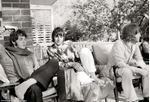
A thrilling new collection of previously unseen photographs of the Beatles and Eric Clapton taken by Pattie Boyd are to go on display for the first time in the UK. The rare images, largely taken during the late Sixties and Seventies, are part of Boyd's personal collection and promise a tantalising insight into the lives of some of the world's biggest rock stars. Boyd, now 71, was married to Beatle George Harrison for a decade and, later, Eric Clapton and many of the photographs displayed in the exhibition in Liverpool in May will document her time as one of the most envied women in the world.
Born in Somerset, Pattie was a British model who was married to George Harrison at the height of The Beatles' fame from 1966 to 1977. She later famously went on to marry George's friend, Eric Clapton in 1979, and is said to have inspired some of the guitar man's greatest hits. As rock folklore has it Clapton pursued her passionately and rhapsodised about her refusal to abandon Harrison for him with his anguished hit Layla. He also wrote his most famous ballad, Wonderful Tonight, for her.
Now some of the iconic pictures she took during her relationships - her marriage to Eric ended in 1989 - are set to go on display in details
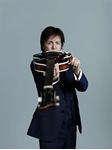
Could Paul McCartney be preparing to release a new musical project? We’re not sure, but the former Beatles star has posted a couple of enigmatic five-second video clips on his social media sites and YouTube channel during the past day or so, that seem to suggest he may be readying a new career-spanning solo compilation.
The first clip, which debuted on Tuesday, sounds like a mashup of a variety of very short musical segments, and is labeled, simply, “McCartney.” The second video, which premiered today, features the same jumbled series of audio snippets along with titles of more than 60 of Sir Paul’s solo tunes, including a mix of his biggest hits and many more obscure tunes from throughout his post-Beatles career.
The titles that speed by in the new video, which aren’t in chronological order, span from Paul’s 1970 solo debut, McCartney, through his most recent studio album, 2013’s New, and even include his 2014 song “Hope for the Future,” from the soundtrack of the video game Destiny. We’ll keep you posted when McCartney announces official details about whatever project he has in store for fans.
Source: ABC News

The Beatles studio guru invented the concept of the modern producer. Ten of his successors reveal the lessons he taught them.
Mark Ronson Amy Winehouse, Adele, Paul McCartney “It’s impossible to go into a studio and not have traces of what the Beatles did with George Martin. The very idea of taking a three-minute pop song and having the urge to put something more sophisticated on it – a string arrangement or a harpsichord or a choir – he brought that to pop music. I was in a studio last night with a bass in my hand, thinking, ‘What would George do?’ Every day you go in a studio, what he did with the Beatles is hanging over you as a barometer of trying to make a good song an extraordinary one.
“He made music more sophisticated, although there is a grittiness to those recordings; it’s not all clean and perfect. He always knew what a recording needed – he introduced backwards tape loops; he was an amazing arranger and he knew how to deal with fragile egos. He could coax the best out of these audio novices who became the most prolific and gifted songwriters of all time. It’s impossible to overstate what he did in terms of trying to make something interestin details
